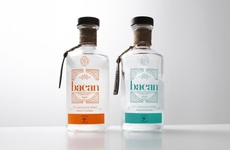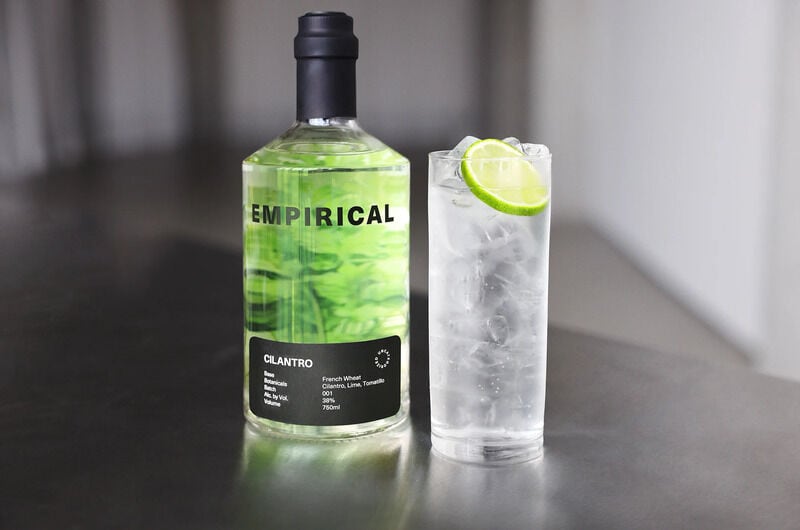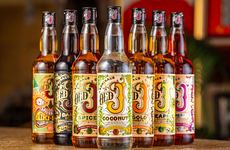
Empirical Cilantro is a Refreshing, Herbal, Approachable Spirit
Laura McQuarrie — October 7, 2024 — Lifestyle
References: us.empirical.co & thespiritsbusiness
Cilantro is a divisive herb—while some people love its fresh, citrusy flavor, others can't stand it, claiming it tastes overwhelmingly soapy due to genetic differences in taste perception—and Empirical Cilantro is a new launch that leans into the flavor wholeheartedly.
Described as refreshing, grassy and herbal, Empirical Cilantro is made from French wheat and it plays up the unique notes of fresh cilantro with tomatillo, lime and vinegar. Although these notes may seem off-putting to some, Empirical underlines "Cilantro is thoroughly unique yet designed to be approachable to cocktail fans and newcomers alike." This unconventionally flavored spirit can be enjoyed in everything from margaritas to martinis or over ice with soda and a squeeze of citrus.
Described as refreshing, grassy and herbal, Empirical Cilantro is made from French wheat and it plays up the unique notes of fresh cilantro with tomatillo, lime and vinegar. Although these notes may seem off-putting to some, Empirical underlines "Cilantro is thoroughly unique yet designed to be approachable to cocktail fans and newcomers alike." This unconventionally flavored spirit can be enjoyed in everything from margaritas to martinis or over ice with soda and a squeeze of citrus.
Trend Themes
1. Herbal-spirits - The infusion of cilantro in spirits showcases a bold step in the herbal flavor profile trend, appealing to adventurous consumers seeking new taste experiences.
2. Genetics-inspired Flavoring - The awareness of genetic taste perception influencing cilantro flavor preference offers an innovative approach to personalize spirit offerings for diverse palates.
3. Citrusy-cocktails - Incorporating citrusy and herbal notes like lime and cilantro in cocktails taps into a growing demand for refreshing and nuanced beverage options.
Industry Implications
1. Craft-spirits - Empirical's cilantro-flavored spirits highlight the craft spirits industry's move towards unique and experimental flavor combinations.
2. Genetic-taste Research - Understanding genetic taste differences opens up opportunities for the genetic-taste research industry to influence product development and marketing strategies.
3. Mixology - The inclusion of unconventional ingredients like cilantro in mixology creates novel taste experiences, pushing the boundaries of traditional cocktail recipes.
4.2
Score
Popularity
Activity
Freshness























